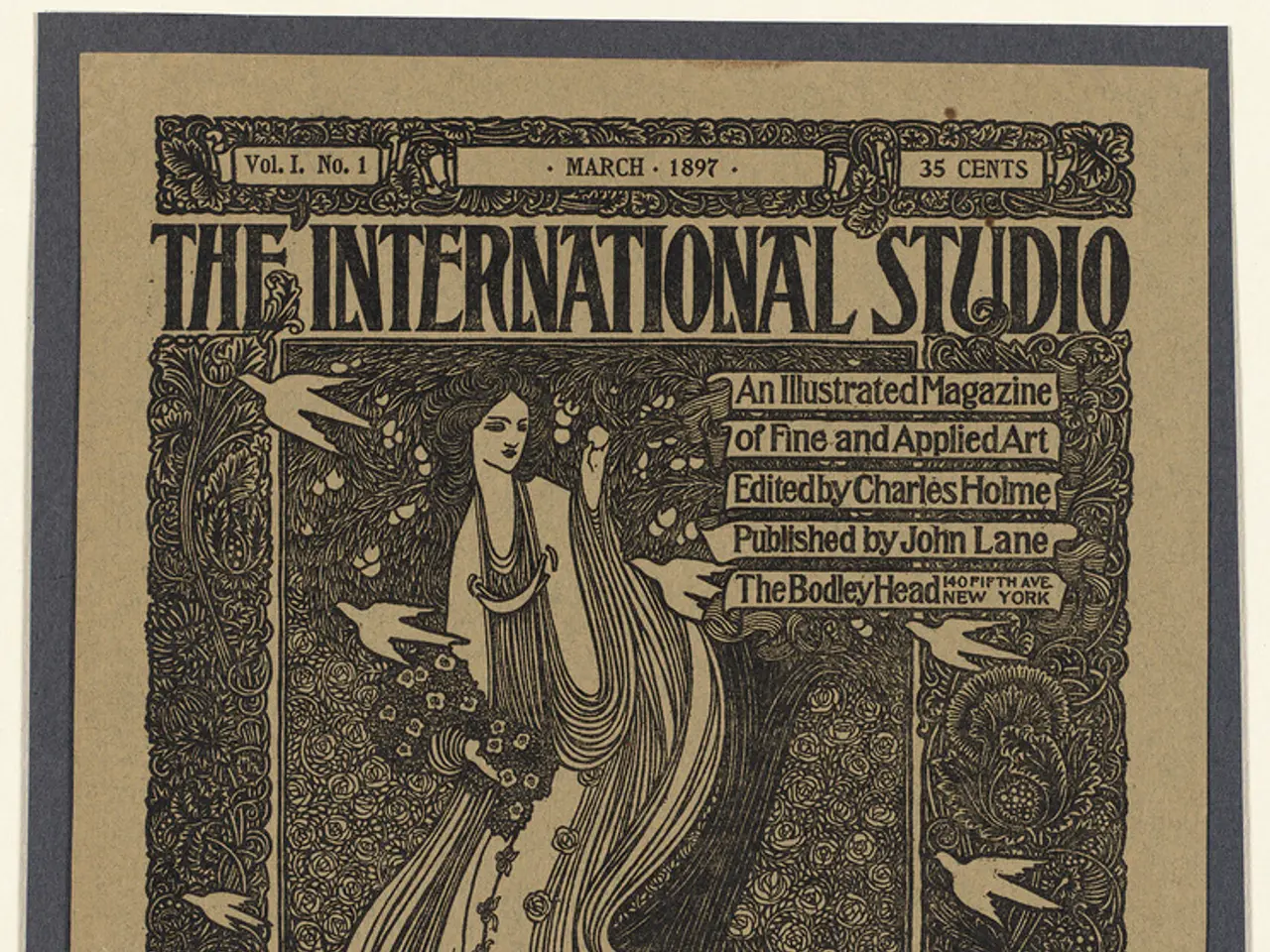Visionary Activist Bertha von Suttner Echoes from the Shadows
Bertha von Suttner, an Austro-Bohemian noblewoman, was born in 1843 in Prague, to an Austrian military family [5]. Growing up in a world where rank, duty, and silence were valued more than emotion, insight, and protest, she would later become a central figure in the international peace movement [6].
Von Suttner was not a lone crusader against war, but a fierce opponent of the thought-form from which war is born: the friend-foe schema, thinking in blocks, and the belief in violence as a necessity [1]. Her work and activism made her a crucial figure in shaping modern anti-war discourse [1][2][3][4].
Her most influential work, the pacifist novel Lay Down Your Arms! (1889), challenged the glorification of war and urged society and political leaders to "lay down their arms" through negotiation and international cooperation [2]. Published in 37 editions and translated into 15 languages, the novel created a literary and moral turning point, containing more truth than any speech [3].
Von Suttner's impact extended beyond literature. She helped found the German Peace Society, served as editor of the pacifist journal Die Waffen nieder!, and participated in significant peace efforts, including the First Hague Convention in 1899, advocating for an International Court of Justice [2]. Moreover, von Suttner influenced Alfred Nobel’s establishment of the Nobel Peace Prize, embedding the values of peace activism into that global recognition [1].
In 1905, von Suttner became the first woman to be awarded the Nobel Peace Prize, recognised for her lifelong dedication to promoting peace and for significantly influencing anti-war thought during an era marked by militarism and conflict [1][2][3]. Her message, often dismissed as naive, even by those who consider themselves realists, was not an attack but a penetration, not a blow but a ray of light, intended to shake rather than convince [4].
Von Suttner's life was marked by resistance, effort, and the disregard of others [7]. She served as a governess in aristocratic households and began to think, interpret, and write for herself [6]. Her peace congresses were gatherings of seriousness, not spectacle, and her path led her to Georgia, where she lived in exile for love and started a life close to reality [8].
In Georgia, von Suttner's idea of man - not as a function, but as a task - matured [9]. She remained steadfast, knowing that it takes more to prevent war than to wage it [10]. Von Suttner's realism acknowledges the dark, the regressive, and the irrational, calling for more light, more understanding, more clarity [6].
Von Suttner's significant connection to Alfred Nobel is evident, with them sharing a spiritual axis [4]. She played a part in the inclusion of the Nobel Peace Prize in Nobel's will [11]. Her work continues to inspire and influence peace activists worldwide, setting a precedent for international peace efforts and recognition of women’s leadership in the cause [1][2][3][4].
References: 1. Bertha von Suttner 2. Bertha von Suttner - Wikipedia 3. Lay Down Your Arms! 4. Bertha von Suttner and Alfred Nobel 5. Bertha von Suttner - Biography 6. Bertha von Suttner 7. Bertha von Suttner 8. Bertha von Suttner 9. Bertha von Suttner 10. Bertha von Suttner 11. Bertha von Suttner 12. Bertha von Suttner - Famous Austrians 13. Bertha von Suttner
- Bertha von Suttner's activism and writings led to significant contributions in the field of policy-and-legislation, particularly war-and-conflicts, as she was a pivotal figure in shaping modern anti-war discourse.
- As the first woman to receive the Nobel Peace Prize, Bertha von Suttner's influence extended far beyond Austria, impacting general-news and political arenas worldwide with her advocacy for peace and international cooperation.






